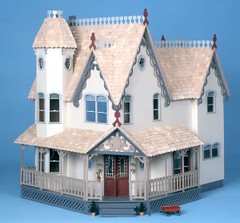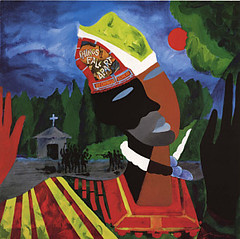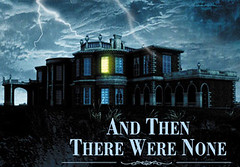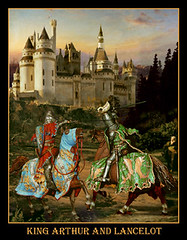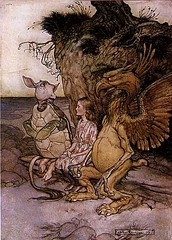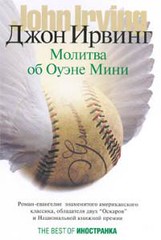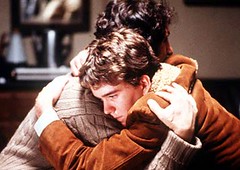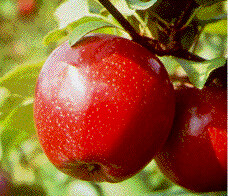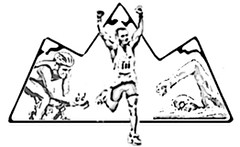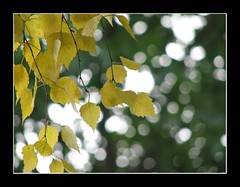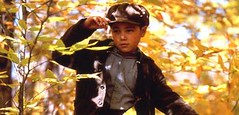Whoo-hoo! With this post I catch up with all the reading I have done thus far. I am a few chapters into The Crazy Horse Electric Game. And I am going to visit my grandma for a week. She lives in the middle of nowhere and naps in the afternoon. Needless to say, I shall be finishing the summer reading list! And I may even get to read a few things I actually want to read.
But back to A Doll's House... I remember reading this in high school and thinking it was stupid. Then I read it in college and it made me angry. Then I just read it now (and yet each time I read it I can never remember a thing about it - go figure) and it made me dreadfully sad. Nora is deadly irritating - but I saw her pain a lot more in this reading. I have met women like her and I usually feel pity. And men like Torvald still exist - although thankfully in lesser numbers. Be ever vigilant young women.
Again, I try to be cryptic because this is definitely worth reading and I want to leave its revelations intact. And it is really short. "Hurrah for short books!" cries each and every high school student I have spoken to this summer.
Since Ibsen is the beginning and the end of my knowledge of Norwegian literature, I will focus on the seeds of feminism in this play. My favorite overtly feminist writer is Marge Piercy. She wrote Woman on the Edge of Time and He She and It(science fiction feminism); Vida and Summer People (hippie-dippy feminism); and Gone to Soldiers and Sex Wars (really great historical feminism). She also writes some excellent poetry.
Friday, August 25, 2006
Things Fall Apart
This book was tough going for awhile. I think part of the problem stemmed from the fact that I was reading it in line at Water Country - the most fun place on earth! However, it is not really contusive to reading. I had to put my book in a ziploc bag when I would go down the water slides. Yes, picture it if you will. Me, in a bathing suit, surrounded by my 8 year old son and his 4 friends, desperately trying to ignore their insane chattering, reading a book about the end of a culture that, while barbaric in many ways, is nonetheless slated for an unfair extinction due to the inevitable encroachment of imperialism. And yes, that is the longest sentence I have written in this entire blog! Thanks for noticing!
At any rate, this book just made me cry and cry. And the thing is, I hated the main character. He was arrogant, bull-headed and selfish. But he started from nothing and made something of himself through hard work and brains. But because of changes in the outside world everything upon which he built his life fell apart. (Hence the name.) Just thinking about it made me sad all over again.
This book was not a pleasant read. It wasn't hard because of vocabulary or because it was too descriptive. But it was hard to get lost in it because the world in which it took place was so unfamiliar to me. But the emotional pay-off was well worth the effort in the end.
I was going to recommend Joyce Cary's Mister Johnson here as a novel about imperialism in Africa. But, if you read it, bear in mind that Chinua Achebe hated it so much that it became part of the reason he wrote Things Fall Apart! I loved The Poisonwood Bible by Barbara Kingsolver. It tells the story of missionaries in Africa through the eyes of their children. And finally, A Passage to India by E. M. Forster is a look at imperialism in India which is so good (and got Forster into a bit of hot water for its "anti-British sentiments" when it was published) I will list it here even though it takes place on an entirely different continent.
At any rate, this book just made me cry and cry. And the thing is, I hated the main character. He was arrogant, bull-headed and selfish. But he started from nothing and made something of himself through hard work and brains. But because of changes in the outside world everything upon which he built his life fell apart. (Hence the name.) Just thinking about it made me sad all over again.
This book was not a pleasant read. It wasn't hard because of vocabulary or because it was too descriptive. But it was hard to get lost in it because the world in which it took place was so unfamiliar to me. But the emotional pay-off was well worth the effort in the end.
I was going to recommend Joyce Cary's Mister Johnson here as a novel about imperialism in Africa. But, if you read it, bear in mind that Chinua Achebe hated it so much that it became part of the reason he wrote Things Fall Apart! I loved The Poisonwood Bible by Barbara Kingsolver. It tells the story of missionaries in Africa through the eyes of their children. And finally, A Passage to India by E. M. Forster is a look at imperialism in India which is so good (and got Forster into a bit of hot water for its "anti-British sentiments" when it was published) I will list it here even though it takes place on an entirely different continent.
And Then There Were None
Now this is what I call summer reading! This was a fun read with no excess learning. Just a really good, somewhat gory story. The ending was wonderful. I read it late at night and I kept trying to stay awake to find out who the killer was and yet I was exhausted but I needed to know! Finally I read the last chapter and fell asleep with the mystery solved. When I woke up the next morning I couldn't for the life of me remember who it was! So I got to read the whole last chapter again and it was brilliantly revealed, again!
Agatha Christie was never on my list of mystery writers for some reason, but I plan to read her now. Although I hear that once you start reading a lot, it becomes pretty easy to determine "who done it".
I will say nothing about the story because it is pretty much all crime and denouement. But basically people are getting killed left and right and the survivors are getting pretty nervous. I have already put the movie in my netflicks queue.
And since I recommend all my favorite mystery authors in the Early Autumn posting I will refrain from listing them again. But I will add Walter Mosely, who I mentioned in the Uncle Tom's Cabin post as a writer on slavery and the black experience, because his Easy Rawlins mysteries are unbeliveably good. And if you like the English mysteries Martha Grimes has a wonderful series, each of which is named for an English pub. There is a Scottish series set in a small town by M.C. Beaton which are clever and easily digestible.
Agatha Christie was never on my list of mystery writers for some reason, but I plan to read her now. Although I hear that once you start reading a lot, it becomes pretty easy to determine "who done it".
I will say nothing about the story because it is pretty much all crime and denouement. But basically people are getting killed left and right and the survivors are getting pretty nervous. I have already put the movie in my netflicks queue.
And since I recommend all my favorite mystery authors in the Early Autumn posting I will refrain from listing them again. But I will add Walter Mosely, who I mentioned in the Uncle Tom's Cabin post as a writer on slavery and the black experience, because his Easy Rawlins mysteries are unbeliveably good. And if you like the English mysteries Martha Grimes has a wonderful series, each of which is named for an English pub. There is a Scottish series set in a small town by M.C. Beaton which are clever and easily digestible.
Thursday, August 24, 2006
The Once and Future King
Well, this was a long haul! I liked this book very much once I got into it. The first 5 chapters were a bit painful until I got used to the tone of the story. And the vocabulary! I have an excellent reading vocabulary (although my speaking vocabulary could use some work) and yet there were more than 15 words I didn't even recognize in those chapters! True, most of them were falconry terms - but still, it made me feel stoopit. And I was on an airplane with no dictionary to look up these words - making me feel trapped as well. It was not pretty. But as soon as Merlin came on the scene, I fell in love with him and the book sailed by.
Until Wart pulled the sword from the stone. (I hope I am not giving anything away there.) At that point I realized - this is a heckuva long book and I still have to read a ton more. And so I took a poll. I asked every future senior I came in contact with through church or the Y or randomly running into them at the beach - "What did you think of The Once and Future King?" And after much piercing Veronica Mars-like questioning they all admitted that they liked it fine but they didn't finish it. "AHA!" I yelled (quietly to myself) "This means that I don't have to finish it either!" So I didn't. But I read enough and I promise that before next summer I will finish it. Probably. Geeze, it's long.
There is something about King Arthur and LONG that must be set in stone. (Like the sword - ha!) Because every Arthurian saga is as long as a Indiana freight train. Seriously - Camelot, the musical, is nearly 3 hours long. The Mists of Avalon (A feminist version of the Camelot legend - it is great!) is a whopping 912 pages. Monty Python and the Holy Grail was short but left out, well pretty much everything but the llamas. And even Disney's The Sword in the Stone only used the first section of the book, with a bunch of other made up things. So there.
Until Wart pulled the sword from the stone. (I hope I am not giving anything away there.) At that point I realized - this is a heckuva long book and I still have to read a ton more. And so I took a poll. I asked every future senior I came in contact with through church or the Y or randomly running into them at the beach - "What did you think of The Once and Future King?" And after much piercing Veronica Mars-like questioning they all admitted that they liked it fine but they didn't finish it. "AHA!" I yelled (quietly to myself) "This means that I don't have to finish it either!" So I didn't. But I read enough and I promise that before next summer I will finish it. Probably. Geeze, it's long.
There is something about King Arthur and LONG that must be set in stone. (Like the sword - ha!) Because every Arthurian saga is as long as a Indiana freight train. Seriously - Camelot, the musical, is nearly 3 hours long. The Mists of Avalon (A feminist version of the Camelot legend - it is great!) is a whopping 912 pages. Monty Python and the Holy Grail was short but left out, well pretty much everything but the llamas. And even Disney's The Sword in the Stone only used the first section of the book, with a bunch of other made up things. So there.
Wednesday, August 23, 2006
Alice in Wonderland
What a shocking surprise! I hated Alice in Wonderland. It irritated me and I don't like Lewis Carroll. I think he is twee. I didn't like the Disney cartoon of this book and I figured that it was just some sort of anomaly and I would surely like this fanciful Victorian story. I love the fanciful. I love the Victorian. But not this. Phooey.
If you like Lewis Carroll - bully for you. Read more of him. I have finally understood what I call "The Elvis Conundrum". My husband hates Elvis Presley. Can't stand his music, his shiny suits or his wacky blue-haired fans. The question is: how can you claim to love rock and roll even a little bit, without respecting Elvis for making it into a phenomenon and therefore appreciate his music on some sort of historical level? My spouse says Elvis-appreciation is not a prerequisite for loving rock and roll. And now I find that, while Lewis Carroll lovers argue that: "The humor, sparkling wit and genius of this Victorian Englishman have lasted for more than a century. His books are among the most quoted works in the English language, and his influence (with that of his illustrator, Sir John Tenniel) can be seen everywhere, from the world of advertising to that of atomic physics." I am still completely unmoved by him. And don't like him. Not even one little bit! I am sure it is some sort of flaw in me and not in the millions who have adored this timeless classic. But that's my story and I'm sticking to it.
If you want children going to strange worlds where things are not at all what they should be (and that I like) - read E. Nesbit or Edward Eager.
If you like Lewis Carroll - bully for you. Read more of him. I have finally understood what I call "The Elvis Conundrum". My husband hates Elvis Presley. Can't stand his music, his shiny suits or his wacky blue-haired fans. The question is: how can you claim to love rock and roll even a little bit, without respecting Elvis for making it into a phenomenon and therefore appreciate his music on some sort of historical level? My spouse says Elvis-appreciation is not a prerequisite for loving rock and roll. And now I find that, while Lewis Carroll lovers argue that: "The humor, sparkling wit and genius of this Victorian Englishman have lasted for more than a century. His books are among the most quoted works in the English language, and his influence (with that of his illustrator, Sir John Tenniel) can be seen everywhere, from the world of advertising to that of atomic physics." I am still completely unmoved by him. And don't like him. Not even one little bit! I am sure it is some sort of flaw in me and not in the millions who have adored this timeless classic. But that's my story and I'm sticking to it.
If you want children going to strange worlds where things are not at all what they should be (and that I like) - read E. Nesbit or Edward Eager.
Tuesday, August 22, 2006
A Prayer For Owen Meany
This book was odd. I found it interesting, but the characters weren't conventionally likeable and it was deeply strange. Also deeply moving. I would call reading it a positive experience, but it wasn't a favorite.
Here are some other opinions if mine is too namby-pamby.
That being said, the last hundred pages or so - when everything looks like it is spinning out of control and you wonder how Irving is going to make sense of the whole thing - are brilliant!
I absolutely loved two other books by Irving - The World According to Garp and A Widow For One Year. I have read a couple others which did nothing for me. And I hear Cider House Rules is wonderful as well and someday I will give it a go I am sure.
And this book allows for some lovely recommendations of books that it seems like I am the only person who has ever read. For books about wee people, try Maybe the Moon by Armisted Maupin and Little Little by M. E. Kerr. A wonderful book about the Vietnam era and student life/draft resistance The First Few Friends by Marilyn Singer is interesting. And the book that started it all for garden variety small town weirdness - Peyton Place by Grace Metalious. Okay - lots of people have read Peyton Place, but not lately!
And so there it is - I am as smart as a future junior. Only the senior books to go and I still have a week and a half before school starts! (If the truth be known, I am still writing about the books I read when I was away. I am nearly halfway through the senior books - right now - but I have to write about them in the order I read them or, um, the universe will explode or something really bad will happen or I'll have to wash my hands over and over... What can I say? I like order.)
Please disregard that last paragraph.
Here are some other opinions if mine is too namby-pamby.
That being said, the last hundred pages or so - when everything looks like it is spinning out of control and you wonder how Irving is going to make sense of the whole thing - are brilliant!
I absolutely loved two other books by Irving - The World According to Garp and A Widow For One Year. I have read a couple others which did nothing for me. And I hear Cider House Rules is wonderful as well and someday I will give it a go I am sure.
And this book allows for some lovely recommendations of books that it seems like I am the only person who has ever read. For books about wee people, try Maybe the Moon by Armisted Maupin and Little Little by M. E. Kerr. A wonderful book about the Vietnam era and student life/draft resistance The First Few Friends by Marilyn Singer is interesting. And the book that started it all for garden variety small town weirdness - Peyton Place by Grace Metalious. Okay - lots of people have read Peyton Place, but not lately!
And so there it is - I am as smart as a future junior. Only the senior books to go and I still have a week and a half before school starts! (If the truth be known, I am still writing about the books I read when I was away. I am nearly halfway through the senior books - right now - but I have to write about them in the order I read them or, um, the universe will explode or something really bad will happen or I'll have to wash my hands over and over... What can I say? I like order.)
Please disregard that last paragraph.
Monday, August 21, 2006
Ordinary People
Can it be that the movie Ordinary People was actually better than the book? Is the world tilting off its axis? Are those the four horsemen of the apocalypse watering their horses at my sump pump drain? I believe it is so! I remember seeing and loving this movie when I saw it as an angst-y teenager. Of course it was back when a fairly ordinary movie could surprise me. But I digress...
I imagine that sometimes this book gets read because it looks short. But it reminded me of Ethan Frome in that, while it was interesting, I don't think that it would be that appealing for a summer read that is supposed to inspire a love of reading. It was interesting in that it is always interesting to see how other people live - spying, in a sense. But it didn't grip me emotionally the way the movie did. I think that can be attributed to the performances of the actors giving more information about the characters by the way they portrayed them than is actually given in the book.
I do like domestic fiction as a rule and how the death of one character affects those left behind. My absolute favorite book that deals with that is The Magician's Assistant by Ann Patchett, a writer I have been dying to recommend ever since I started recommending books here. Also, I suppose in a way, The Giant's House by Elizabeth McCracken. A couple of writers who manage to take sort of ordinary people and make their stories fascinating are Anne Tyler and Alison Lurie. And if you didn't like Ordinary People, rest assured that these other writers will not disappoint.
I imagine that sometimes this book gets read because it looks short. But it reminded me of Ethan Frome in that, while it was interesting, I don't think that it would be that appealing for a summer read that is supposed to inspire a love of reading. It was interesting in that it is always interesting to see how other people live - spying, in a sense. But it didn't grip me emotionally the way the movie did. I think that can be attributed to the performances of the actors giving more information about the characters by the way they portrayed them than is actually given in the book.
I do like domestic fiction as a rule and how the death of one character affects those left behind. My absolute favorite book that deals with that is The Magician's Assistant by Ann Patchett, a writer I have been dying to recommend ever since I started recommending books here. Also, I suppose in a way, The Giant's House by Elizabeth McCracken. A couple of writers who manage to take sort of ordinary people and make their stories fascinating are Anne Tyler and Alison Lurie. And if you didn't like Ordinary People, rest assured that these other writers will not disappoint.
Sunday, August 20, 2006
Cat's Cradle
Well this was a fun one! I was looking forward to Cat's Cradle and it didn't disappoint. I had read a little bit of Vonnegut before - just Slaughterhouse Five and Mother Night. But there is always the possibility that a book by an author you had heretofore liked will turn out to be lousy. But this was not the case.
I don't want to say much about the plot because the plot kind of sneaks up on you in this book. It was what I liked most about it. I also loved the format of having a ton of very short chapters that have evocative titles. And I hated the idea of Mona until chapter 93 when I found out that she was not at all what she seemed. But mostly, this is a book of men, men, men, men.
Vonnegut is in the category of writers that I call "The-writers-who-were-enjoyed-by-the-pretentious-boyfriends-of-my-youth". These writers are actually fascinating and I try to keep the origins of my interest in them in a separate locked portion of my brain and enjoy them on their own merits. They include, but are not limited to: Thomas Pynchon, T.C. Boyle, Hunter S. Thompson, Lester Bangs, Tom Robbins, Jack Kerouac and Graham Greene. Okay, I am just kidding about Graham Greene - but he is a really good writer, too. All of these writers are fascinating and different from each other and different from anyone else you may have read. If you like Vonnegut and you are looking for something unusual - give one of those guys a try.
I don't want to say much about the plot because the plot kind of sneaks up on you in this book. It was what I liked most about it. I also loved the format of having a ton of very short chapters that have evocative titles. And I hated the idea of Mona until chapter 93 when I found out that she was not at all what she seemed. But mostly, this is a book of men, men, men, men.
Vonnegut is in the category of writers that I call "The-writers-who-were-enjoyed-by-the-pretentious-boyfriends-of-my-youth". These writers are actually fascinating and I try to keep the origins of my interest in them in a separate locked portion of my brain and enjoy them on their own merits. They include, but are not limited to: Thomas Pynchon, T.C. Boyle, Hunter S. Thompson, Lester Bangs, Tom Robbins, Jack Kerouac and Graham Greene. Okay, I am just kidding about Graham Greene - but he is a really good writer, too. All of these writers are fascinating and different from each other and different from anyone else you may have read. If you like Vonnegut and you are looking for something unusual - give one of those guys a try.
Thursday, August 17, 2006
The Orchard
The Orchard was a little unnerving at first. It looked like something that would interest me. A young woman during the Depression manages to keep her family’s farm by running it herself. I was assured by my sources that no one ever reads this for summer reading and I can see why. It is both long and about fruit. If I were in high school I would avoid it like a bag full of maggots. However, being quite dull myself and a fan of fruit – I found that I enjoyed it very much.
The story behind the way it was published was interesting to me. The daughter of the writer found the manuscript and had it published posthumously. (The daughter wasn’t dead yet when she had it published, of course, but the mother/writer was. Just want to be clear.)
The very beginning of the book had me worried. The daughter wrote the very earnest introduction and I read it. I know, I know – I keep telling people “For the love of all things holy – do not read introductions until after you have read the book!” And then I don’t take my own advice. So the tone of the introduction was a wee bit irritating to me. It seemed that the writer implied that, like an apple a day, this book was going to be good for me. I don’t want to be improved by a book, I just want to enjoy it. And so I pursed my lips and got ready to take my medicine. Luckily the book itself was not distasteful at all, but really interesting and surprisingly funny in parts.
There are very few characters in the book, mostly just Kitty, her dog, and the men who worked for and with her. When people start talking about the rhythm of a book, I begin to get nervous. But this book really had a good rhythm. It made me conscious of the seasons in a way that books never do. (Names, clothes and seasons in books never make an impression on me. Everything I read could be about naked people named John and Nancy and take place in a weather-free environment and I would barely notice.) And I learned more than I ever thought I would about growing apples.
I don’t read a lot of books about farming. But I read a ton of books about the Depression. I probably already mentioned some of them. One that reminded me a lot of The Orchard - in that it was about a person who has far better survival skills and useful knowledge that I have – is Hitch by Jeanette Ingold. It is the story of a boy who joins the civilian conservation corps in the 30s. It is a sequel and I look forward to reading more about this character. Also, I would be a bad librarian if I didn’t recommend The Grapes of Wrath. I loved it and it is an interesting look at what was happening on the other side of the country at the time The Orchard took place.
Speaking of weather – the next book up, Cat’s Cradle, is one in which I did notice the weather. And it is awesome! (Hope I am not giving anything away…)
The story behind the way it was published was interesting to me. The daughter of the writer found the manuscript and had it published posthumously. (The daughter wasn’t dead yet when she had it published, of course, but the mother/writer was. Just want to be clear.)
The very beginning of the book had me worried. The daughter wrote the very earnest introduction and I read it. I know, I know – I keep telling people “For the love of all things holy – do not read introductions until after you have read the book!” And then I don’t take my own advice. So the tone of the introduction was a wee bit irritating to me. It seemed that the writer implied that, like an apple a day, this book was going to be good for me. I don’t want to be improved by a book, I just want to enjoy it. And so I pursed my lips and got ready to take my medicine. Luckily the book itself was not distasteful at all, but really interesting and surprisingly funny in parts.
There are very few characters in the book, mostly just Kitty, her dog, and the men who worked for and with her. When people start talking about the rhythm of a book, I begin to get nervous. But this book really had a good rhythm. It made me conscious of the seasons in a way that books never do. (Names, clothes and seasons in books never make an impression on me. Everything I read could be about naked people named John and Nancy and take place in a weather-free environment and I would barely notice.) And I learned more than I ever thought I would about growing apples.
I don’t read a lot of books about farming. But I read a ton of books about the Depression. I probably already mentioned some of them. One that reminded me a lot of The Orchard - in that it was about a person who has far better survival skills and useful knowledge that I have – is Hitch by Jeanette Ingold. It is the story of a boy who joins the civilian conservation corps in the 30s. It is a sequel and I look forward to reading more about this character. Also, I would be a bad librarian if I didn’t recommend The Grapes of Wrath. I loved it and it is an interesting look at what was happening on the other side of the country at the time The Orchard took place.
Speaking of weather – the next book up, Cat’s Cradle, is one in which I did notice the weather. And it is awesome! (Hope I am not giving anything away…)
Tuesday, August 15, 2006
Ironman
I like Chris Crutcher a lot. And apparently, so do many of you. According to a few English teachers who teach Ironman in their classes, it is a favorite. And with good reason. Everyone(except mean people) likes the story of an underdog who emerges victorious over all the people who try to keep them down.
I read this weeks ago and thus have forgotten most of the important plot points. So I will just say that I remember his father is a controlling horror show and his teachers (except for his evil coach) are pretty nice. I thought the other kids in the anger management group were really well written, too. And there is a big race at the end. I wonder how that will turn out...
I just read my first Chris Crutcher book last summer The Sledding Hill and it was fantastic - it is told from the point of view of a dead boy. I also liked Staying Fat for Sarah Byrnes, for the title alone. Ironman reminded me of Alt Ed by Catherine Atkins, another story of high schoolers who are brought together to work out problems that are generally the result of other people's messed up behavior and attitudes. Another great book about friendships that save lives is Fat Kid Rules the World by K.L. Going.
I read this weeks ago and thus have forgotten most of the important plot points. So I will just say that I remember his father is a controlling horror show and his teachers (except for his evil coach) are pretty nice. I thought the other kids in the anger management group were really well written, too. And there is a big race at the end. I wonder how that will turn out...
I just read my first Chris Crutcher book last summer The Sledding Hill and it was fantastic - it is told from the point of view of a dead boy. I also liked Staying Fat for Sarah Byrnes, for the title alone. Ironman reminded me of Alt Ed by Catherine Atkins, another story of high schoolers who are brought together to work out problems that are generally the result of other people's messed up behavior and attitudes. Another great book about friendships that save lives is Fat Kid Rules the World by K.L. Going.
Monday, August 14, 2006
Early Autumn
I absolutely love the Spenser mysteries and Early Autumn is one of my favorites. Three or four years ago I spent part of the summer reading all of the Spenser novels in chronological order. It was wonderful. As I was re-reading this I had all these wonderful ideas about what I was going to post here. They were very insightful and it very likely would have changed your life to read them. Sadly, this was way back the last week of July and I now can remember none of these ideas. So I will just give you my two negative thoughts about the Spenser books:
1. I hate the way Spenser admires Susan's bird-like appetite. Please, she probably binge-eats the minute she gets out of his sight.
2. I think Susan is kind of a whiner early in the series. She gets better.
I love everything else about them. There is a fantastic website by a man with a lot of time on his hands that cites all the allusions in the books. And I am a big enough Spenser geek that I have submitted a few. My favorites in the series are Potshot and Ceremony.
Some librarians (and English teachers and publishers and other reading-types) look down on genre fiction, by which they mean mystery, romance, science fiction and other topics that can be easily categorized. This strikes me as quite unfair because often people get so sucked down a rabbit hole of trying to define types that they just forget to just enjoy reading. Within the mystery genre there are many enjoyable books (and series). Here are a few of my favorites.
The Beekeepers Apprentice by Laurie R. King. The protagonist is Mary Russell an impoverished young girl genius who befriends an aging Sherlock Holmes.
The Thomas and Charlotte Pitt series by Anne Perry. Beginning with The Cater Street Hangman and continuing for 24 more books, these are a detail-rich Victorian mystery series.
Maisie Dobbs by Jacqueline Winspear. A former ladies maid turned detective solves mysteries that generally have to deal with World War One.
Lest you think that I only read about English girl detectives:
The Kinsey Milhone Mysteries by Sue Grafton. Starting with A is for Alibi and going all the way to S is for Silence - these books follow the adventures of a P.I. with a horribly pathetic social life and a real gift for getting to the bottom of things.
I also like Agatha Christie, Janet Evanovich, Martha Grimes, Nancy Drew, The Happy Hollisters and Beverly's own Dana Cameron. And if you absolutely must watch television - my new favorite detective is Veronica Mars. But don't tell anyone I am recommending television - even though the show's creator is Rob Thomas - author of Rats Saw God - a great young adult novel. Feel free to come get it at the library!
1. I hate the way Spenser admires Susan's bird-like appetite. Please, she probably binge-eats the minute she gets out of his sight.
2. I think Susan is kind of a whiner early in the series. She gets better.
I love everything else about them. There is a fantastic website by a man with a lot of time on his hands that cites all the allusions in the books. And I am a big enough Spenser geek that I have submitted a few. My favorites in the series are Potshot and Ceremony.
Some librarians (and English teachers and publishers and other reading-types) look down on genre fiction, by which they mean mystery, romance, science fiction and other topics that can be easily categorized. This strikes me as quite unfair because often people get so sucked down a rabbit hole of trying to define types that they just forget to just enjoy reading. Within the mystery genre there are many enjoyable books (and series). Here are a few of my favorites.
The Beekeepers Apprentice by Laurie R. King. The protagonist is Mary Russell an impoverished young girl genius who befriends an aging Sherlock Holmes.
The Thomas and Charlotte Pitt series by Anne Perry. Beginning with The Cater Street Hangman and continuing for 24 more books, these are a detail-rich Victorian mystery series.
Maisie Dobbs by Jacqueline Winspear. A former ladies maid turned detective solves mysteries that generally have to deal with World War One.
Lest you think that I only read about English girl detectives:
The Kinsey Milhone Mysteries by Sue Grafton. Starting with A is for Alibi and going all the way to S is for Silence - these books follow the adventures of a P.I. with a horribly pathetic social life and a real gift for getting to the bottom of things.
I also like Agatha Christie, Janet Evanovich, Martha Grimes, Nancy Drew, The Happy Hollisters and Beverly's own Dana Cameron. And if you absolutely must watch television - my new favorite detective is Veronica Mars. But don't tell anyone I am recommending television - even though the show's creator is Rob Thomas - author of Rats Saw God - a great young adult novel. Feel free to come get it at the library!
Tuesday, August 08, 2006
The Education of Little Tree
Good grief it has been a long time! I am back from the wilds of the Midwest where I read every single book from which the juniors-to-be can choose. I think I might even be able to pass the MCAS at this point, I am feeling so smart.
I didn't expect to like The Education of Little Tree too much. I don't like nature books and any jacket copy that says a book will change my life makes me get huffy and think, "What on earth makes you think I would like my life changed?" However, it was lovely. Funny, sad, full of life lessons - it was a life-changer, if you are the sort of person who goes in for that kind of thing.
The story is about a young boy who loses his parents and goes to live with his Cherokee grandparents during the Depression. There are stories of dogs and Indian history and how to make whisky and orphanages. It is well worth reading.
I don't recall having read many books about nature or living in harmony or grandparents or making whisky. There are a million and twelve books about losing parents. Which leaves me with books about Native Americans. My favorite book by an Indian writer is The Lone Ranger and Tonto Fistfight in Heaven by Sherman Alexie which is a series of short stories part of which was made into a great movie called Smoke Signals. I also loved The Bean Trees and it's sequel Pigs in Heaven which tell the story of a young woman who finds an Indian baby and the family that they become.
Now don't read any further until you have finished the book.
I'm waiting.
No hurry.
Okay here is the thing; there is some controversy about The Education of Little Tree. If you want to click the link there is a well documented article the gist of which is that this book is in no way autobiographical. Forrest Carter was a segregationist and a leader in the Ku Klux Klan who wrote extensively about the superiority of the white race. Does this make Little Tree a bad book? I don't know. I really liked it and I am glad that I read it before I knew this. I think that it would have diminished my enjoyment a great deal if I had known. (See my soon-to-be-written posting on Alice in Wonderland for more discussion on this topic.)
I didn't expect to like The Education of Little Tree too much. I don't like nature books and any jacket copy that says a book will change my life makes me get huffy and think, "What on earth makes you think I would like my life changed?" However, it was lovely. Funny, sad, full of life lessons - it was a life-changer, if you are the sort of person who goes in for that kind of thing.
The story is about a young boy who loses his parents and goes to live with his Cherokee grandparents during the Depression. There are stories of dogs and Indian history and how to make whisky and orphanages. It is well worth reading.
I don't recall having read many books about nature or living in harmony or grandparents or making whisky. There are a million and twelve books about losing parents. Which leaves me with books about Native Americans. My favorite book by an Indian writer is The Lone Ranger and Tonto Fistfight in Heaven by Sherman Alexie which is a series of short stories part of which was made into a great movie called Smoke Signals. I also loved The Bean Trees and it's sequel Pigs in Heaven which tell the story of a young woman who finds an Indian baby and the family that they become.
Now don't read any further until you have finished the book.
I'm waiting.
No hurry.
Okay here is the thing; there is some controversy about The Education of Little Tree. If you want to click the link there is a well documented article the gist of which is that this book is in no way autobiographical. Forrest Carter was a segregationist and a leader in the Ku Klux Klan who wrote extensively about the superiority of the white race. Does this make Little Tree a bad book? I don't know. I really liked it and I am glad that I read it before I knew this. I think that it would have diminished my enjoyment a great deal if I had known. (See my soon-to-be-written posting on Alice in Wonderland for more discussion on this topic.)
Subscribe to:
Comments (Atom)
